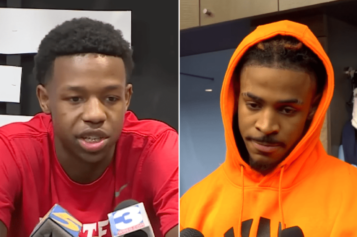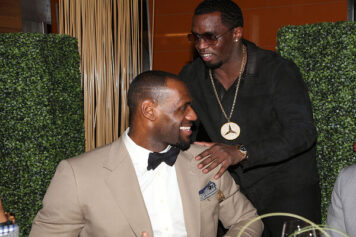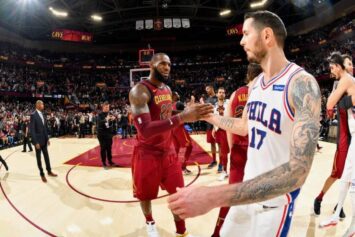Life for Mario Chalmers and Norris Cole can probably be compared to a pack of young lions that rule the NBA wild lands. They are integral parts of the ruling kingdom, but the Lion King James, and his chief hunters Dwyane Wade and Chris Bosh share in the fruits of glory first.
Pedestrian members of the pack like Chalmers and Cole—who perform “secondary” yet essential survival duties—get very little shine at the end of the day.
Despite existing under the looming celebrity blanket of “The Big Three,” Chalmers and Cole have increasingly assumed vital roles as dangerous pieces in Miami’s blistering transition attack.
Separately, neither player is considered a Top 20 point guard, but together they complement each other brilliantly and are examples of Miami’s shrewd front office and organizational stability. Heat President Pat Riley went out and got the big guns in James and Bosh via free agency. But drafting Chalmers four years ago out of Kansas and then Cole in ’11, are examples of the Heat organization putting the right pieces around “The Big Three.”
The organization is committed not only to winning, but understands the importance of chemistry and team basketball. It’s a philosophy that begins at the top and trickles down through James to his supporting cast. Look at any “Dynasty” organization and you’ll find stability, shrewd scouting and strong leadership, defined roles and unselfishness.
Some critics say Miami had the benefit of a strike-shortened season in ‘12. Wade was banged up, but he didn’t have to deal with the rigors of an 82-game grind and then playoffs. The season was just short enough for him to maintain near all-star levels. Miami’s bench was amongst the NBA’s worse and “The Big Three” carried the entire load. You could have had Bugs Bunny and Daffy Duck out there with them and you’d probably get the same result.
Acknowledging this deficiency and how it might dampen future title hopes, Riley and the boys went out and strengthened the bench. Adding Birdman Anderson’s energy and Ray Allen’s sharp-shooting were lauded moves from the jump. Playing for an organization that understands and “develops” talent within a winning system has benefitted Chalmers and Cole. Chalmers had a slow transition to the NBA game, but the Heat organization stuck with him and recognized his pedigree. The former Kansas Jayhawks All-American is part of an exclusive club of NBA champions that have also won NCAA titles. Coles has come a long way from being the awestruck rookie playing in the NBA Finals last season.
While rocking his Big Daddy Kane flattop, Cole scored 18 points in a Game 2 blowout win against Chicago in the East Semifinals. Then he doubled that up with 18 more in Miami’s 104-94 Game 3 win, playing the entire fourth quarter, scoring seven points and outscoring Chicago’s entire squad.
Second-year, low first-round draft picks don’t usually jump into the mix with legends and influence the outcome of bloody-mess playoff games—especially not ballers from Cleveland State. But unexpected performances like these have made it easy for Heat fans to overlook Wade’s knee woes and shaky shooting production. This is the chance for the two unheralded lions—and other members of the Heat’s fortified bench—to grab a super-sized slice of NBA history and be remembered as dope champions, rather than the forgotten pieces of a winning situation.
The Heat front office is looking genius now for adding and developing this much-needed backcourt. They have the skills to give any team ulcers by simply executing the offense, picking their spots and providing the dagger when LBJ throws the no-look in the paint or the cross-court for the wide-open trey.
Also, if the Heat meets an equally-dogged defensive team like Memphis in the Finals, Cole and Chalmers have already been acclimated to snarly, ‘90s-brand basketball. They’ve already proved that they have the cool to ignore antagonists like Joakim Noah and Nate Robinson. Next up is the chance to embrace an opportunity to write their own chapter, and be more than footnotes in “The Big Three” championship NBA novel. They owe their careers to a Miami organization that understands chemistry, loyalty and intelligent managing and—as much as anything—keeps championship teams together.



